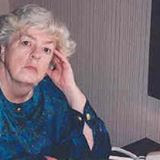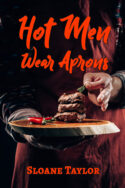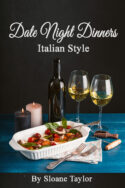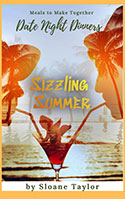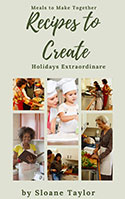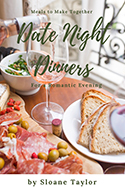PICNIC POWER
August 15, 2016 | Author Friend Promo
by Eris Field
Picnics have long been known to have the power to move wooing to marriage. Wooing or courting is different from dating. It is the process by which one person, having decided that he/she has found an acceptable life partner, convinces the other person that they should forsake all others and move forward toward marriage.
In the past, a certain hierarchy of enticements was used by a gentleman wooing a lady. Love letters written in perfect penmanship on personal stationery was often the opening salvo. Unlike email or text messages, letters could be stroked, sniffed, hidden in bodices, tucked under pillows, and read repeatedly by candlelight.
 |
| Photo by John Kasawa |
Candy and flowers followed. Boxes of candy—carefully selected candies nestled in elaborately decorated boxes were delivered to the lady with a brief message written on a card. The language of flowers was carefully studied so that the right message would be conveyed by the bouquet.
While letters, candy, and flowers were effective, they took time. A gentleman determined to marry, and soon, pulled out the heavy artillery—the picnic. Picnics have two elements—seeming innocence and surprise. The gentleman would not disclose the destination or the contents of the picnic basket. Please note it was a basket not a cooler, Styrofoam chest, backpack, or plastic bag from the deli. The gentleman carried a blanket over one arm that had the purpose of keeping grass stains off the lady’s dress and the picnic basket over the other arm.
Contents of the basket included the essentials: a bottle or two of wine, two glasses, napkins, and delicious food that was usually not encountered at regular meals and so had a slightly forbidden quality. Tempting items included: crisp bread or rolls, cheeses (Brie, Gruyere, Provolone or Jarlsberg), thinly sliced smoked turkey, cold fried chicken, prosciutto, Lebanon salami, hard boiled eggs, olives, nuts, and fruits. The basket always held the lady’s favorite dessert.
Picnic settings, with careful planning, were private and, with the blanket, fairly comfortable. The wine was crisp and the food delicious. In fact, over time it was found that a properly planned picnic had a fairly strong correlation with marriage.
In my contemporary novel, The Gift of Love, psychiatrist Andrew, in a hurry to convince Laurel to marry him, finds himself using his elderly Aunt’s courting instructions, including the picnic.
Laurel, a slightly impulsive pediatric nurse who spent her early years in foster care, dreams of having a family of her own—six children, no men in the dream. Laurel doesn’t just dream, she has a plan—stop her stepsister’s compulsive hoarding, clear out the mountains of paper engulfing every room, and sell the old house that is pushing her toward bankruptcy. As a last resort, she raids her retirement fund to go to a conference on the newest treatments for compulsive hoarding.
Andrew, a psychiatrist, is never impulsive. A reticent, somewhat austere man, he limits his interactions with people to his work. About to leave for the conference where he has agreed to fill in for a colleague, he suddenly finds himself the reluctant caretaker of a two and a half year old boy.
When they first meet, a series of unfortunate events cause Laure to view Andrew as arrogant, rude, but disturbingly attractive, while Andrew to view Laurel as a dangerous distraction to be avoided. Faced with a crisis, they are forced work together, but will they be able to put aside their protective armor and trust each other enough to let love in?
Eris Field was born in the Green Mountains of Vermont—Jericho, Vermont to be precise—close by the home of Wilson Bentley (aka Snowflake Bentley), the first person in the world to photograph snowflakes. She learned from her Vermont neighbors that pursuit of one’s dream is a worthwhile life goal.
As a seventeen-year-old student nurse at Albany Hospital, Eris met a Turkish surgical intern who she later married. He told her fascinating stories about the history of Turkey, about the loss of the Ottoman Empire, and about forced population exchanges. After they married and moved to Buffalo, Eris worked as a nurse at Children’s Hospital and at Roswell Park Cancer Institute.
After taking time off to raise five children and amassing rejection letters for her short stories, Eris earned her master’s degree in Psychiatric Nursing at the University at Buffalo. Later, she taught psychiatric nursing at the University and wrote a textbook for psychiatric nurse practitioners—an endeavor requiring a great deal of hard labor.
Eris now writes novels, usually international, contemporary romances. Her interest in history and her experience in psychiatry often play a part in her stories. She is a member of the Romance Writers of America and the Western New York Romance Writers. In addition to writing, her interests include Honor Killings, eradicating female genital mutilation, supporting the Crossroads Springs Orphanage in Kenya for children orphaned by AIDS, and learning more about the old cities of the world.
Learn more about Eris Field on her website. Stay connected on Facebook.


